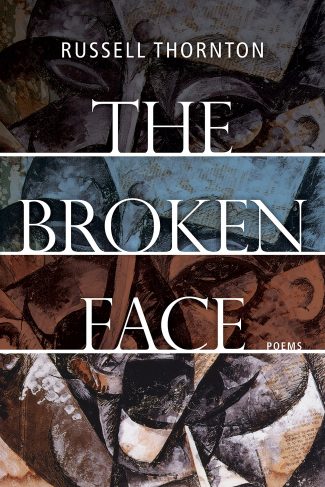#775 Life’s transience and fragility
There Are Not Enough Sad Songs
by Marita Dachsel
Edmonton: University of Alberta Press, 2019
$19.99 / 9781772124521
*
The Broken Face
by Russell Thornton
Madeira Park: Harbour Publishing, 2018
$18.95 / 9781550178449
Both books reviewed by John Carroll


Woven through the poems in these collections is a thread of uneasiness about the fragility of life. The feeling hits me deep in the gut and lingers long after I’ve put the books down.

There Are Not Enough Sad Songs is Marita Dachsel’s third collection. Dachsel tries to strike a balance between the potent dramas of family life and the sense that all can be lost in a moment of forgetfulness, or the ever-ready subsuming of mortality. There’s the realization in “Gentle Infestation” that “we are browned/ blossoms dried on car windows.” In “yes, let’s,” she admits that “we all know that hope is a string of fake pearls.”
Behind the sensory world of “shuswap july,” there lies the dark potential of disaster, and in “obligatory road trip,” the poet recalls premonitions she was “too young to read” while gazing at the clouds above Mount St. Helens. The balance is maintained, but like a teacup on the tip of a pencil, and the value of the collection rests in our recognition that we, too, search for that balance.

Russell Thornton’s The Broken Face demonstrates an admirable versatility of variation in form, line length, imagery, and subject matter. His poems focus more on narrative than Dachsel’s and are often written in prose. Yet he, too, is taken up by the theme of life’s fragility. “Teeth,” a prose poem, approaches the subject from the perspective of tooth enamel, and isn’t, as one might assume, comedic. The poem is a powerful speculation on deterioration of the body, the mind, and the ability of a human to connect with others. It ends with the enigmatic proclamation, “What we cannot know is what we most are.” It is a haunting piece, as are many others in the collection. The relationships in the poems centre on family — father and son, father and daughter — and sprinkled throughout are examples of when these profound connections go haywire and descend into violence.
The theme of fragility comes up again in “Question,” when the father observes his daughter’s shoulder blade, and muses on its creation. The poem ends with:
I know
that when she dies I will not be there to grieve —
and my daughter is a song and I am a leaf
that falls and watches itself fall.
A similar theme occurs in “A Dove,” an elegant poem about the narrator and his children observing a dove outside their apartment. But the theme is most thoroughly achieved in “Sirens,” which can be seen as the centrepiece of the entire collection. The narrator and his son hear sirens. The young child is most fascinated by the emergency vehicles, wishing to “see them speed to a stop across the street.” The father hears in the sirens the sounds of potential disaster: “What I hear/ in the street is no alluring high song.” However, he imagines himself as “brave, strong, wise Odysseus,” as he holds his son, imagining Odysseus lashed to the mast of his ship:
he and I act as a ship’s mast that holds
a sail that fills with wind and steadies us
on the sea waves winding around the world.
In this poem, and in the collections by both authors, we see the duality of opposing perspectives, the counterpoint of fragility and strength necessary to survive a world balanced on a razor’s edge.
*

John Carroll is a writer and professor emeritus at the University of the Fraser Valley in Abbotsford.
*
The Ormsby Review. More Books. More Reviews. More Often.
Publisher and Editor: Richard Mackie
The Ormsby Review is a journal service for in-depth coverage of B.C. books and authors. The Advisory Board consists of Jean Barman, Robin Fisher, Cole Harris, Wade Davis, Hugh Johnston, Patricia Roy, David Stouck, and Graeme Wynn. Scholarly Patron: SFU Graduate Liberal Studies. Honorary Patron: Yosef Wosk. Provincial Government Patron since September 2018: Creative BC
“Only connect.” – E.M. Forster
One comment on “#775 Life’s transience and fragility”